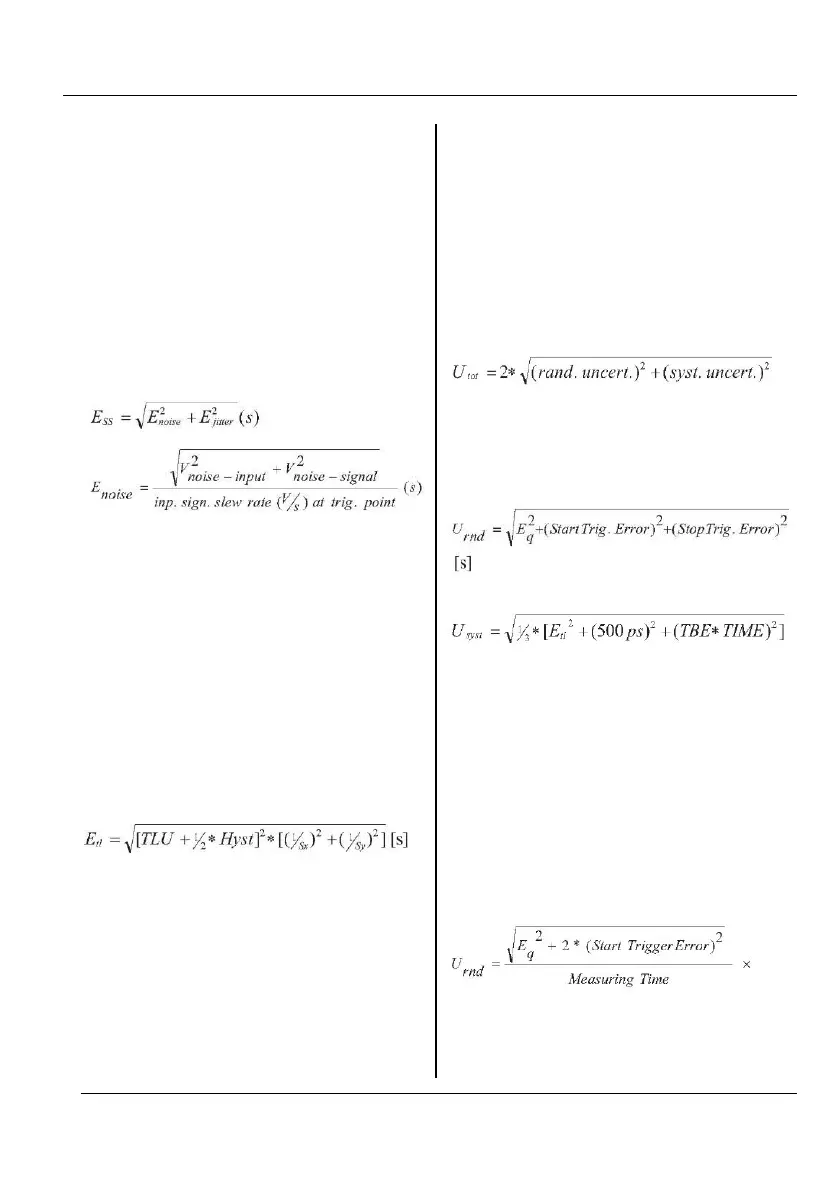Uncertainties
Random Uncertainties (1
)
■ Quantization Error (Eq)
■ Start/Stop Trigger Error (Ess)
Ejitter = Single Period Jitter (rms) (s)
500 uV
rms
internal noise (200
uV
rms
typical)
The rms noise of the applied
■ Trigger Level Timing Error (E
t
l)
Time Interval, Rise/Fall Time, Pulse Width,
Duty Factor, Phase (attenuator setting xl)
Sx = Slew rate at start trigger point (V/s) Sy =
Slew rate at stop trigger point (V/s) TLU =
Trigger level uncertainty (V) Hyst =
Hysteresis window (V)
Hyst = 30 mV ± 1% of trig lvl (DC to 1 kHz)
for Pulse Width & Duty Factor
Hyst = 6 mV ± 1 % of trig lvl (DC to l kHz)
for other measurement functions.
TBE is the relative error of the timebase oscil-
lator (dimensionless) and depends on the actual
oscillator used. See Timebase Options on page
8-15.
The general formula for all measurement
functions is:
Time Interval, Pulse Width,
Rise/Fall Time
■ Random Uncertainty (rms)
Etl = trigger level timing error
500 ps = maximum channel difference
TBE = timebase error
TIME = measurement result
■ Random Uncertainty (rms)
For measuring times <200 ms and if Smart
Freq = AUTO or OFF:
x Measurement Result [Hz or s]
USER MANUAL ● CNT 9x Series ● Rev.22 February 2020
